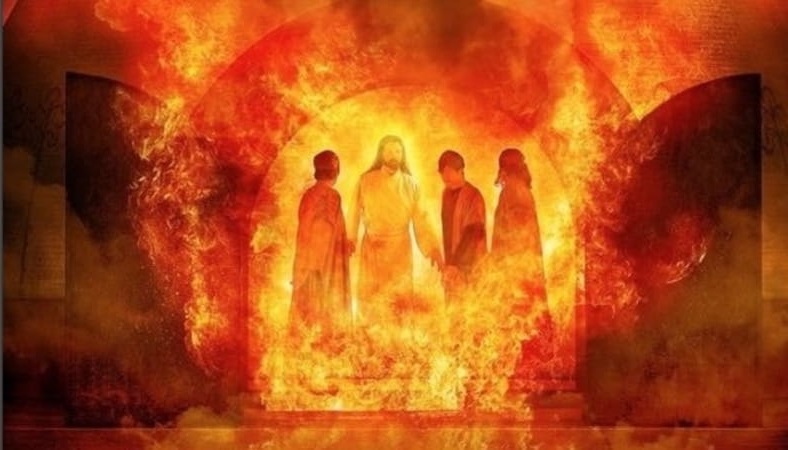More Than a Sound Byte
By Anthony Casperson
8-15-20
(Spoilers for the Dresden Files below. Though only minor for the newest book in the series, Peace Talks.)
Jim Butcher’s series about a wizard detective who lives in present-day Chicago gained its newest addition about a month ago. And once again, this protector of humanity against supernatural threats is called to action.
Early on in the book, there is a scene where Dresden has to have a conversation with his young daughter, Maggie. He needs to send her somewhere safe (the home of a retired paladin and his family) so that the wizard can focus on the situation at hand.
As her father hugs her goodbye, Maggie asks him what is going to happen if he doesn’t come back. The two had only recently come into each other’s lives, and she doesn’t want to lose him.
Dresden’s internal monologue thinks of all of those movies where the dad promises their children that everything is going to be alright and not to worry. But Harry decides that his daughter deserves “better than a quick sound byte and a four-second hug while [he] looked tormented for the camera.”
He tells her that he will do his absolute best to come back to her. But even if the worst happens, preparations have already been made for Maggie’s safety. She’ll be taken care of by the Carpenters (the paladin’s family). Her education has already been figured out. And Dresden had made arrangements to be able to literally watch over her for the rest of the girl’s life.
(Look, I don’t agree with the theological ramifications of the story. I understand this is fiction. It’s about a modern-day wizard after all. But I have a point here.)
Dresden knew that it would be easy to give the child-friendly version of what would happen. He could’ve given his daughter the quick-and-easy promise. But there was no guarantee that he could cash that check.
It was better to give an adult answer where he reassured Maggie that she was so important to him that he would fight his best to return to her. But even if he couldn’t, he’d done everything in his power to provide for her.
She deserved more than a sound byte.
A couple of days after I’d teared up at this moving scene, I was listening to a sermon. The preacher was speaking about several events in the life of Elijah. This prophet of God had been provided for by him while dwelling out in the wilderness. God had caused ravens to bring food to Elijah twice a day and there was a river nearby for the water source.
But there was a drought in the land, prophesied by Elijah himself, so the water eventually ran out. At this time, God sent word to the prophet to go to a town called Zarephath. There he would meet a widow. And as it happened, that was the first person Elijah met in the town.
The prophet asked the woman for water and a small loaf of bread. But the widow told him that she had little food left. As a matter of fact, she was about to prepare the last bit for her and her son to eat, readying themselves for their inevitable deaths.
At this, Elijah prophesied that if the woman made him a small loaf from the little bit of flour and oil that she had, then there would be enough for her and her son. And on top of that, the flour and oil wouldn’t run out until after God sent rain once again on the land.
And the miracle happened just as the prophet announced.
While going through the story, there were two points where the preacher wrote a check in God’s name. Both when the ravens provided for the prophet and when the flour and oil didn’t run out, the preacher promised his audience that God would work miracles in their lives. Without any sort of caveat, the preacher looked at the camera, peering into the eyes of his digital audience, and crescendoed by repeating a phrase incessantly, promising that a miracle would come.
And the words came into my head, “Your audience deserves ‘better than a quick sound byte and a four-second hug’ while you look into the camera.”
Yeah, it’s easy to give the child-friendly answer that, if you just believe, God will work a miracle. Just hold on. Just have hope. I’ve had to repent for bouncing a few of those God checks before too. I know just how easy it is to make that kind of promise.
But it’s better for us to have a proper understanding of God’s provision, even when the miracle doesn’t happen. There’s an adult answer to faith that reminds us how important we are to God, which is shown regardless of the amount of miracles in our lives. A hope that remains unshakable even if the worst happens.
We deserve more than a sound byte.
After all, in the time of Elijah, were there not any other faithful people suffering from the drought? Were the prophet, the widow, and her son the only ones in need of a miracle? How many others found their provision in God, not from a miracle, but in the warm embrace of their God after they died? Or does everyone other than me think that the only reason we don’t see all of those miracles is because they just weren’t recorded?
I know that God is called the Provider. And he is able and willing to provide for those who are his. But the truth is that there are still starving people among his servants who will die rejoicing in his provision.
Why is that? I don’t know. But what I do know is that it’s better to not make promises we can’t guarantee than to promise the same miracle for all people. Because when the “100% guaranteed” miracle doesn’t happen in the life of one person, that makes them doubt the power, faithfulness, and love of God for them. It’s better to say that God is able, but even if the worst happens and the miracle never comes to be, God is just as much the Provider.
It reminds me of the story from Daniel 3 with Hananiah, Mishael, and Azariah. (You might know them better as Shadrach, Meshach, and Abednego, but I prefer to call them by their original names that give glory to God, rather than the names their Babylonian captors gave them, which give glory to false gods.)
King Nebuchadnezzar made a golden image that he required all people to bow down before. But Hananiah, Mishael, and Azariah wouldn’t bow before anything other than God. The king threatened to throw them into a giant walk-in oven. But that threat didn’t challenge their resolve.
In verses 17-18 they even said in regard to their punishment, “our God whom we serve is able to deliver us from the burning fiery furnace, and he will deliver us out of your hand, O king. But if not, be it known to you, O king, that we will not serve your gods or worship the golden image that you have set up” (ESV).
The trio knew that God was able to deliver them. He could work the miracle. But they didn’t look at the king and proclaim with a 100% guarantee that they’d be back out of the fire alive. Only that God would deliver the three from the king’s power (even it was to come through their death). They didn’t write out a check in God’s name that might bounce. Their faith and hope didn’t rely on a promise of a miracle. It remained unshattered because they knew the provision of God even if the worst happened.
The three were thrown into the fire and they remained unharmed from the heat. A fourth being also stood in their midst (which I believe was the Second Person of the Trinity in a pre-incarnate state, but that’s another story). And in the end, when the trio exited the oven without even the scent of smoke upon them, the king gave praise to their God.
Yes, in this instance the miracle happened, but the point isn’t that God will always work a miracle. Rather, it’s that our faith and hope in God shouldn’t be reliant on it always working that way. Even if the worst happens, God is still our Provider. He remains faithful.
It might not resonate as well as a sound byte. It’s not pithy enough to yell repeatedly in the camera. But it is much more true to God’s work in our lives.
Can God perform this miracle? Absolutely. But my faith and hope in his power, his faithfulness, and his love will not shatter if he doesn’t.




